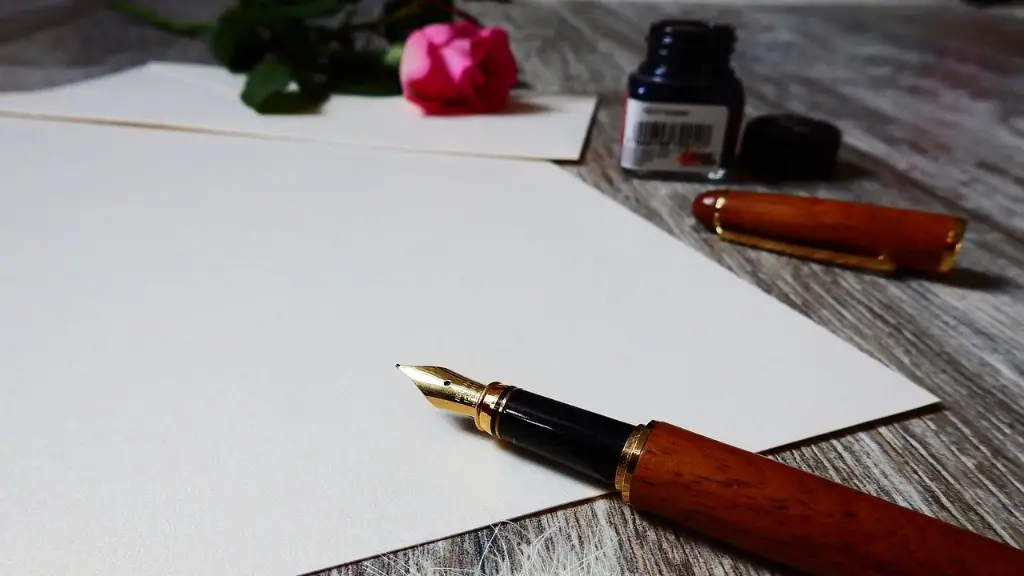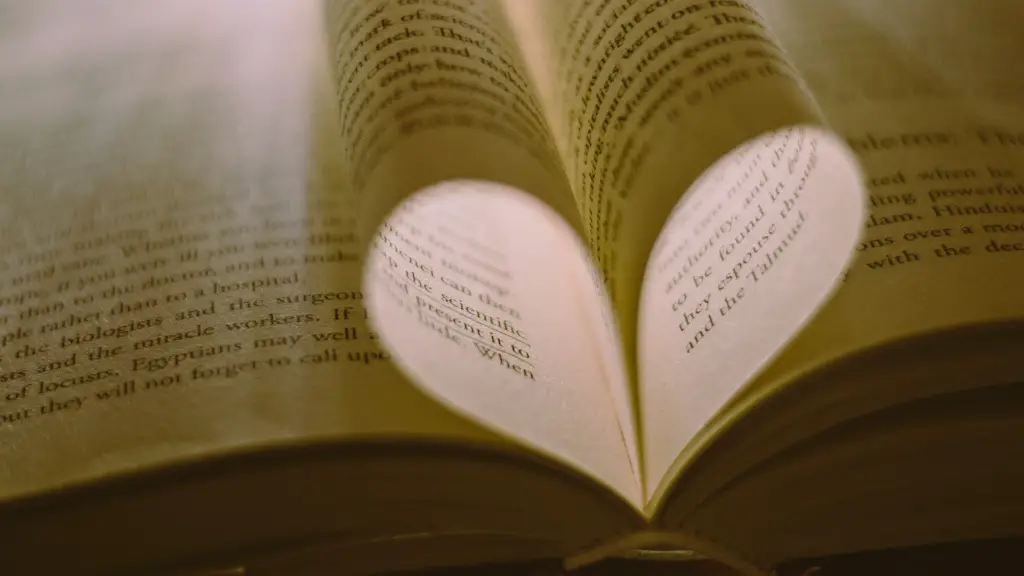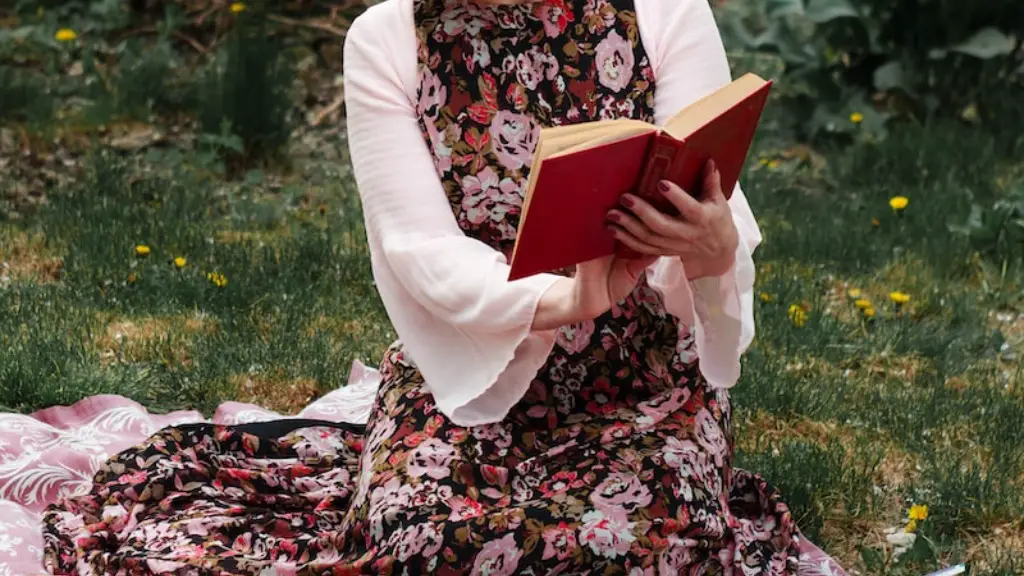Poetry is a form of literary art in which language is used for its aesthetic and evocative qualities. The speakers in poetry are usually characters who represent some kind of perspective or point of view in the poem. They can be individuals or groups, people in a certain time or place, or an idealized version of human experience. A speaker can be a narrator in a story, a character in a play, or even a personified abstraction such as Nature in a nature poem.
Speakers are an important tool used by the poet to communicate their message and deliver their ideas. They can bring the poem to life, help convey the feelings of the poet, and create an atmosphere or mood. By using speakers, the poet is able to make a connection with the reader on a deeper level. The speaker’s thoughts and feelings can be used to contrast or compare to the reader’s own experiences, opening up conversations between them.
The speaker can also be used to explore the poem’s theme. By identifying certain points of view or statements made by the speaker which are not necessarily in line with the poem’s theme, a subtle but powerful kind of dialog is created that encourages the reader to explore the poem and its implications in more depth. This is a dramatic way of identifying and discussing a theme without having to make explicit pronouncements on the matter.
Speakers can also be used to bring a sense of authenticity and realism to the poem. By creating a speaker who is either a real or imagined person, the poet can use the speaker to make their poem more believable and accessible. This makes it easier for the reader to connect to the poem on an emotional level. For example, a speaker in a war poem may experience emotions such as anger, sadness, despair or hope, and the reader may be able to relate to these emotions on a personal level.
Speakers can also be used to examine and comment on broader social issues. Since the speaker is distinct from the poet, they can be used to explore the poet’s opinions without speaking on their behalf. This allows the poet to present multiple perspectives on a difficult topic without having to assume the role of judge or jury. The speaker gives their opinion, but the poet has the freedom to decide how to interpret that opinion.
As a form of literary art, poetry allows us to explore the complexities of the human experience in a way that is both beautiful and thought provoking. The use of speakers in poetry adds a layer of depth and meaning to the poem that can’t be found in other forms of literature. Whether it’s to bring a story to life, explore a theme, create an emotional connection, or examine a social issue, the speaker in poetry is an invaluable tool for the poet.
Exploring the Symbolism and Metaphors
Speakers are also often used to explore the symbolism and metaphors found in poetry. By asking questions or offering observations regarding the symbols and metaphors within the poem, the speaker can help lead the reader down a path of understanding, revealing deeper levels of meaning that may not be immediately apparent. Questions about the choices of language and tone, as well as discussion of sociopolitical implications, all lend to the overall understanding of the poem.
Speakers can also be used to explore the ideas of identity and belonging. Through the speaker’s dialogue, the poem can explore who they are and where they fit in the world. By connecting with the feelings of the speaker, the reader can gain insight into the poet’s perspective and explore the unique complexities of individual and collective identity.
Speakers in poetry can also be used to explore the interrelationships between people. By having conversations in the poem, different characters can examine the similarities and differences between their ideas, beliefs and experiences. This can allow for a thorough exploration of the nature of relationships, both in romantic and platonic terms, and can offer the reader an opportunity to reflect on the intricacies of their own relationships.
Finally, the speaker in a poem can often be used to allow for a deeper exploration of emotions. By sharing the speaker’s thoughts and feelings, the poem can serve as a platform for the poet to explore and express a range of emotions, both positive and negative. The reader can connect with these emotions and use them to reflect on their own life experiences.
The Powerful Impact of Speakers
Speakers in poetry have an immense impact on the poem’s message and meaning. By creating a unique and distinct point of view, the speaker can open up conversations between the reader and the text that wouldn’t otherwise be possible. Through the speaker, the reader can explore a range of topics, including symbolism, metaphors, identity, relationships and emotions, in a way that is both personal and meaningful.
The powerful impact of speakers in poetry is rooted in their ability to make the poem come to life. By creating a character who speaks from a certain point of view, the poet can tell a story that resonates with the reader and encourages them to explore the nuances of the poem in more depth. Speakers are a valuable tool for poets, and their use should not be underestimated.
Exploring the Role of the Poet
The role of the poet in utilizing a speaker in poetry should not be overlooked. It is up to the poet to make sure that the speaker’s words and feelings accurately convey the message they are trying to get across. This includes selecting words that are powerful and evocative, as well as deciding how to present the speaker’s perspective in a way that is both believable and engaging.
The use of language is crucial here, as the words used can have an immense impact on the poem’s message and meaning. The poet must decide which words to emphasize and which to downplay, and how to weave together various elements in a way that helps bring the poem to life. It is up to the poet to create a speaker that their readers can connect with and believe in.
The poet also has to decide how to represent different points of view. Many times, speakers in poems will have opinions that may be in conflict with each other. It is up to the poet to decide how to make them work together to create a unified and compelling poem. The poet must be aware of the potential impact of the speaker’s words, and be careful to strike a balance between conflicting points of view.
In Conclusion
Speakers in poetry are a powerful tool that can be used to enhance the poem’s message and meaning. By creating a character who speaks from a certain point of view, the poet can make their poem come to life and encourage their readers to explore the poem in more depth. The importance of the role of the poet in creating an effective speaker should not be underestimated. Selecting the right words and creating believable characters can add a layer of depth and meaning to a poem, and should be carefully considered by all poets.




